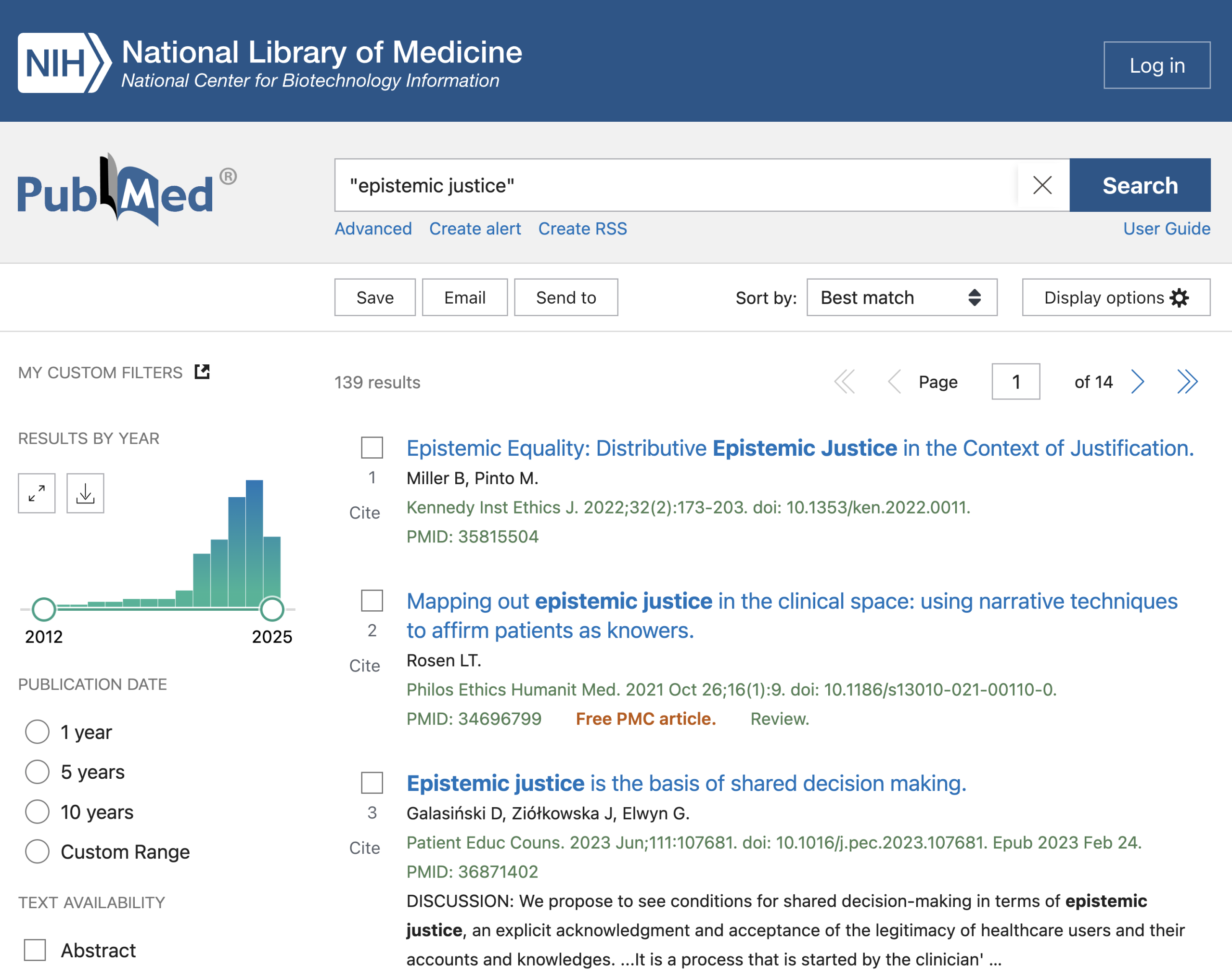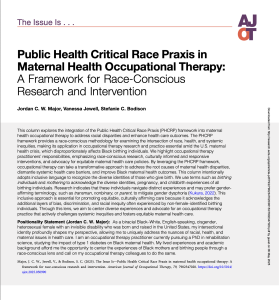4.2 Strategy 2: Finding Diverse Perspectives Within Eurowestern Information Systems
In Chapter 3, we mentioned that certain information systems are prioritized within western society – primarily, systems that value the written word, the English language, and see knowledge as something that can be bought and sold. These information systems include search engines, library databases, and social media platforms. Valuable knowledge is produced and shared by these technologies, but we also know now that the way they were built helps to hide or silence other forms of knowledge.
In Strategy 2, we’ll focus on searching inclusively within these knowledge systems in order to find those hidden and marginalized voices. We’ll briefly explain how a few of these platforms operate and are built. Then, we’ll share some concrete suggestions of how to use them to find diverse perspectives.
Finding Diverse Perspectives in Academic Literature
How they work
Many library tools, like academic databases or your school’s library catalogue, share similar structures and organizational principles. Both are “collections of digital, print, and other information resources that are organized and managed for the purposes of research, education, and scholarship” (CLRN, 2024 ). Because there are so many academic journals in production, and they often require a paid subscription, databases help us to both access our library’s paid collection and find articles on a specific discipline or topic (Foley & Campbell, 2017 ![]() ). Otherwise, we would need to separately search the website of each individual journal we are interested in exploring.
). Otherwise, we would need to separately search the website of each individual journal we are interested in exploring.
As you may know, we can access the many millions of journal articles indexed in databases by building strong search strings. These are commands we write to tell library catalogues and databases which items to show us from their collection. Regardless of our topic or discipline, once we know the basic ‘rules’ for building search strings, we can use almost any database to find academic literature.
Building search strings
To create a strong ‘search string,’ it’s important to know how Boolean Operators and keywords work together. Check out resources from your local library, or explore the video Searching with Boolean Operators ![]() from Western Libraries.
from Western Libraries.
How to find diverse voices in academic literature
We cannot rely on Boolean searching alone to uncover hidden voices. We share four tips below for seeking out diverse perspectives with academic databases and library catalogues.
a) Apply Strategy 1: Search Databases and Library Catalogues Using a Range of Search Terms
Integrate diverse key terms into your search strings. As we discussed in Strategy 1, we want to try out community language, current terminology, and standardized words when building search strings.
We recommend keeping track of the terminology you try, and in which database(s) you use it, as it’s easy to get confused. A search term chart is included in your workbook for this section.
b) Pay attention to database algorithms.
Some databases, like PubMed, use algorithmic searching in combination with Boolean logic. This means that search results are displayed by what is deemed ‘relevant’, which may reinforce existing societal biases. Others default to only showing English-language articles. We recommend looking at the default search limits and other algorithmic settings of any database you’re using.
c) Watch for author positionality statements.
While not a required component of all journal articles, more and more authors are choosing to share their social identities through author positionality statements. These statements are listed within the text of journal articles and are a chance for authors to relate their social identities to their research topic, methodology, and their participants. While sometimes controversial (Gani & Khan, 2024; Savolainen et al., 2023), positionality statements can help us better understand a researcher’s relationship to their participants or subject matter, as well as help us notice any potential epistemic injustices (Assoulin & Bacaller, 2024; Boveda & Annamma, 2023). We talk more about positionality statements in Chapter 5.
d) Search outside disciplinary boundaries.
Academic databases are often organized by discipline or topic, but that doesn’t mean your research has to stay within those boundaries. Disciplines like education, social work, sociology, Indigenous studies, or gender studies often publish research using methodologies centering lived experience, community engagement, and critical reflection. To find academic literature that incorporates diverse perspectives, consider seeking out studies that use participatory action research, autoethnography, or Indigenous research methods.
You can also seek out journals published in, or focused on, the Global Souths, where researchers may frame problems and knowledge production differently than in Euroamerican contexts. For example, the Global Souths Hub ![]() offers examples of journals from the Global Souths, with an emphasis on publications coming from these regions.
offers examples of journals from the Global Souths, with an emphasis on publications coming from these regions.
Take a moment to practice this Strategy before watching the video below of your chapter authors applying these search techniques.
 Stop and Reflect
Stop and Reflect
Consider: where is it possible for you to practice the knowledge justice strategies outlined in this section of Chapter 3? There is space for you to jot down a few notes in your workbook. For example, where might you seek out and use diverse academic literature in:
- Your professional work?
- Everyday conversations or informal interactions?
- Your course assignments?
All activities can also be found in a downloadable workbook. Visit the ‘Using this Resource‘ page to access the workbook in MS Word and PDF formats.
Commands written to instruct library catalogues, search engines, and databases to retrieve specific information using relevant keywords combined with Boolean operators.
Words like ‘AND’ and ‘OR’ that help refine search results in tools such as databases.
A statement that acknowledges the influence of an individual’s social location and lived experience on their specific context, practice, or piece of work.
Refers to the diverse global communities and regions shaped by histories of colonization, imperialism, and ongoing inequalities, emphasizing varied experiences and perspectives marginalized by Western systems.
The research paradigm that values empirical inquiry like positivism, while acknowledging that complete objectivity is impossible as researchers are influenced by their values, experiences, and social contexts.



